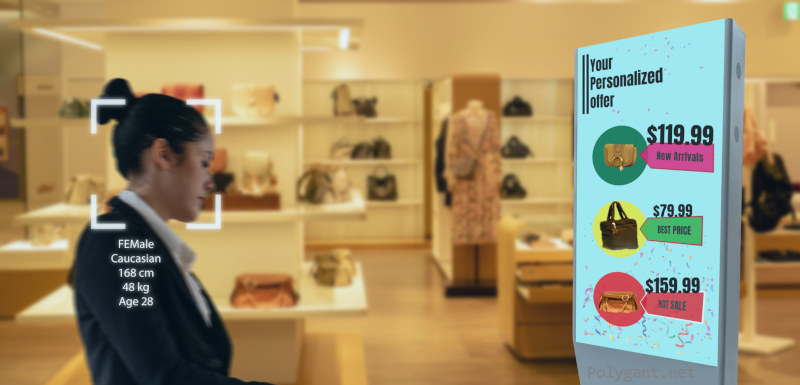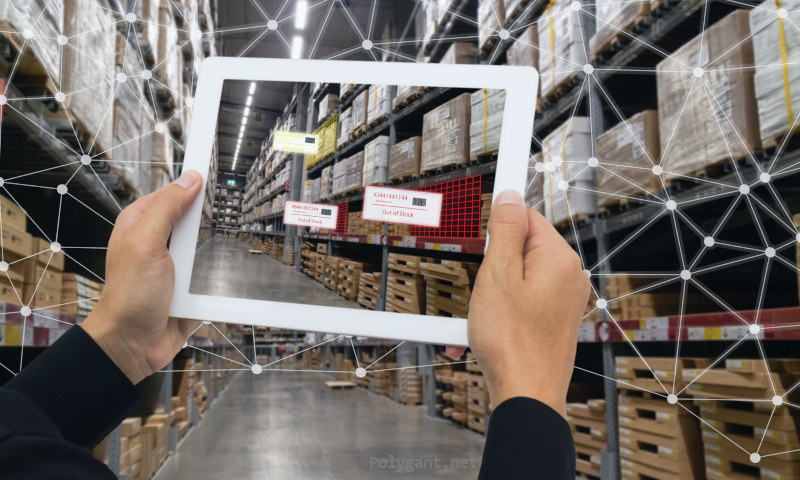Artificial intelligence (AI) is gaining traction, opening new horizons for businesses. Powered by big data analysis, machines grow smarter and user-friendlier. In practice, AI-inspired retail store automation is going to be the sales industry’s common phenomenon. And do not forget we are only at the dawn of this technology. More and more retail stores abandon default touchscreen computers in favour of smart consumer assistants. Speaking robots and intelligent interactive screens spread wider and wider, at fast pace. So what could AI do for retail?
Table of Contents
Customer service
Today’s retailers employ AI for communicating with their customers by means of individual online interfaces, sales bots, and social media. Artificial intelligence enables e-commerce retailers to offer their customers a handy way to choose products.
For example, take a potential smartphone buyer getting to Amazon. Website interface identifies the consumer personality and invites to specify the brand, model, screen dimensions, price range, etc. During this, Amazon provides a great chance to shrink the time to purchase and customer efforts.
How does it work? Usually, a consumer receives personal recommendations induced by their previous purchases. If they have no purchase history so far, they must have looked out for something while flicking through product pages. AI is mighty enough to absorb and consider all this info and then massively generate personalized target pages, value offers, cart content, and other items — all in the meantime.
Dynamic price formation
Online retail giants like Amazon are armed with huge amounts of data and applications helping respond to competitor prices in real time. Those owners of small stores, conversely, could not afford such tools. Until artificial intelligence showed up. Today, this technology—budget-friendly even for small businesses—enables lower-scale businesses to challenge the established titans.
How does it go in practice? Trade apps can automatically update product prices by means of adjustments based on external data, e.g. weather, local events, competitors’ marketing campaigns, etc.
Stock control
Major retailers and chains fulfil tons of orders every day. Sellers often find it difficult to manually monitor the stock and ensure fail-safe and timely delivery while meeting all customer demands.
However, they are not alone anymore, as today they are assisted by AI-powered retail apps. These digital tools can find out supply gaps, evaluate and track stock, forecast required stock based on such factors as customer preferences, previous purchases, season, etc. Overstocking is no longer a problem with this intelligent stock management.
Experienced retail
Smartphone and tablet apps help sellers better communicated with consumers, and provide consumers with comprehensive product info. With the face recognition mechanism, AI can identify a consumer once they enter the store. After that, AI informs the seller—via the internal app—that the long-standing customer is in, remind of their preferences, and show the purchase history.
As you can see, artificial intelligence is all set to transform the retail industry. Sellers and consumers seamlessly interact thanks to the proper integration of this technology. The crucial must is that business owners and sellers need to think strategically — to realize the connection between the technology they make use of and customer experience.


